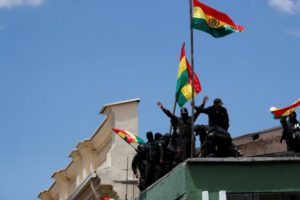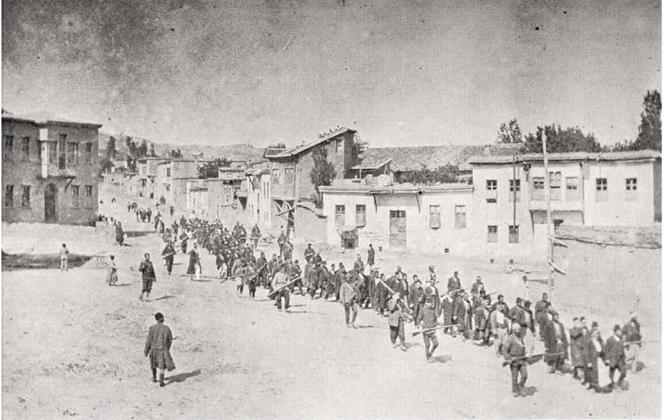SEGOVIA – Over the past weeks I have seen the Bolivian situation through a very particular lens. Despite being physically away from the action, my Bolivian roommate would listen to the news while he cooked his food and call his family to see if they are ok. Oddly enough, I have been in his position before. I understand the anxiety he has felt, the rushes of frustration and glimmers of hope. What he and his country are going through right now, seem eerily familiar to me, a Venezuelan.
Of course, there are drastic differences too. One being that Bolivia’s Evo Morales had actually resigned on November 10, after a series of protests taking place all around the country. The protests lasted three weeks and resulted in deaths, injuries and destroyed property. However, it seems that the principal factor that has led to the resignation of Morales was a request from the military’s chief to step down. In spite of that, Bolivians are currently dealing with something that Venezuelans have not had to deal with for a while: the question of whether a coup had occurred or not.
Vividly, I could remember the day Guaido became the interim president. There was a feeling of hope I had not experienced in years. On social media, the word “coup” was suddenly associated with Guaido and Venezuela, even though what he had done was constitutional. It was extremely frustrating to have such a monumental moment dismissed as illegitimate by others. So many seemed to not acknowledge our fight for freedom. Bolivians have had to deal with the same frustration as well. The situation in Bolivia is far from simple, yet it is essential to fully analyze whether or not Bolivia has actually undergone a coup this past week.
On October 20, protests began to erupt following the presidential elections. The elections were to determine whether Morales could run for another term (his fourth). Although the Bolivian Constitution limits Presidents to two terms, Morales does not count his first term, as it had preceded the previously mentioned version of the Bolivian Constitution. In 2016, Morales pushed for a constitutional amendment that would allow him to run again, which failed in a public referendum. Despite the results, the Supreme Court ruled that preventing Morales from running again would be against his human rights, which allowed him to run once more. This October, Morales aimed for his fourth (or third) term, in which he would’ve extended his 14 years of power to a “dictatorially-suspicious” 20-year period.
It is to no one’s surprise that serious infringements to the integrity of a democratic system were happening. Moreover, the attempt for an additional term would’ve violated even the modern constitution, especially considering that his public referendum was unsuccessful. Therefore, a blurring of the division of powers meant to protect democracy had become a norm in Bolivia, showing growing signs of an authoritarian leader, disobeying democracy and breaking the rules for his political advantage. However, the course of these events was not left unnoticed by the Bolivian public.

Ever so increasingly, the integrity of these elections held in October were questioned. In order for Morales to avoid a second round against his opponent Carlos Mesa, he would need a 10% advantage. The vote counting suddenly came to a halt. Morales had just below what he needed to avoid a runoff. When counting finally resumed the next day, Morales had suspiciously gotten the overwhelming majority of the votes left. That final result gave Morales more than the 10% victory margin needed. This prompted Bolivian citizens to take the streets and so, the stream of protests began. Protests shut the entire country down. In cities such as La Paz, Cochabamba and Santa Cruz the streets flooded with angry citizens. The situation got extremely violent when a pro-Morales mayor was taken from her office by protestors who covered her in paint and cut her hair. As the protests went on, there were more calls for resignation, with even the national Labour federation, a previous ally of Morales, calling for his resignation. The final straw was when the general in charge of the Bolivian army called for Morales to resign. A few hours later, the protests came to their fruition. Morales resigned.
In spite of his resignation, the contextual framework needs to be taken into account. It was at this very moment when the word “coup” was coined. The military did suggest for Morales to resign, which under some interpretations is enough for the situation to be named a coup. However, there was no violence used as pointed out by John Polga-Hecimovich, a political scientist. “It issued a verbal declaration and did not give the president an ultimatum. I think that’s the crux of the matter. Whether you want to view that as a threat or not. If you view it as a threat, it’s a coup. If you don’t view it as a threat but as a suggestion, then you don’t,” Polga-Hecimovich stated in an interview with the Associated Press.

It is also worth observing which countries have in fact labelled this a coup, in spite of the definitions of a coup being coined around. Venezuela and Cuba are among the countries calling this a coup, both of which are dictatorships, having oppressed its citizens from democracy. Left-wing populists in countries such as Mexico and Argentina also named it a coup. Clearly, support stems from those who agree with Morales’ political ideology: socialism. An ideological alliance, one might conclude.
On the other hand, Chile also having seen nationwide protests, have defined the ongoing situation in an entirely different manner. Chileans perceive their protests as a “revolution” as a “fight against neoliberalism”. The same protests occurring in Bolivia are seen as “elitist” and a “coup”. Ideology has defined the language used to describe each event when in reality, they are both cases of people fighting for democracy and a better life.
Bolivia ultimately did not undergo a coup. It was a country on the verge of losing every shed of democracy it had left. Under conditions where democracy is undermined, one cannot wait for the following elections. Bolivia’s only way out was this. Though not considered the most ideal way, the fight could not wait any longer. Many Bolivians had seen what became of Venezuela and opted not to take that avenue. Rather, they chose the road less travelled: an uprising against an undemocratic regime, which has silenced its people for far too long.




